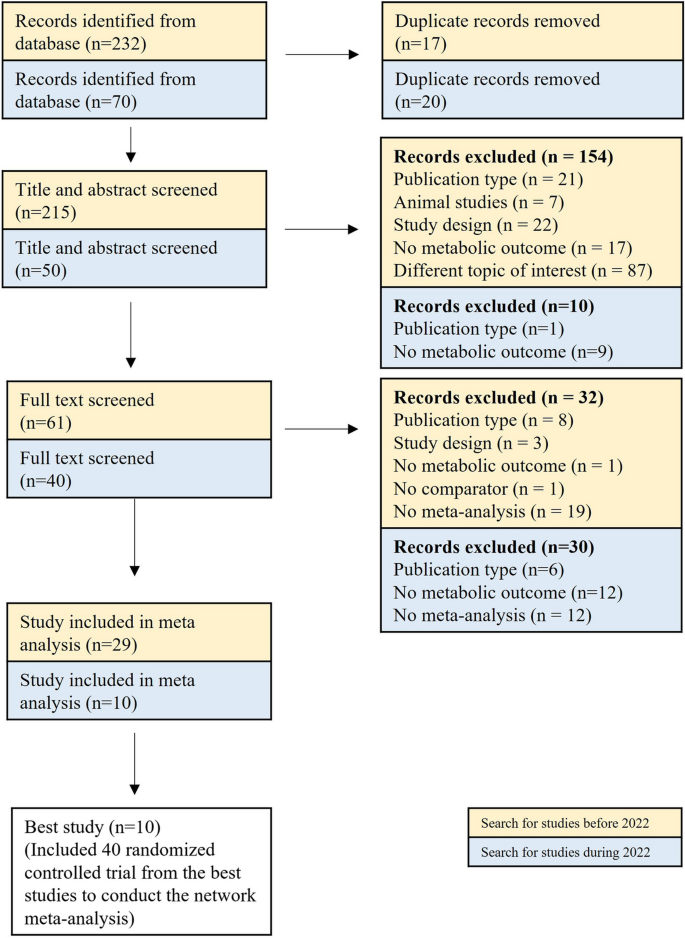This is a review article on the effects of intermittent fasting (IF) compared to a usual diet or calorie restriction (CER) on various health outcomes. Here are the main findings:

Benefits of IF over usual diet and CER:
- Significantly decreases body weight (BW) and fat mass (FM)
- Significant improvements in lipid profiles, including lower triglycerides (TG), total cholesterol (TC), and low-density lipoprotein cholesterol (LDL-C)
- Minor effects on blood pressure (SBP and DBP)
- No significant effects on fasting blood glucose (FBG) or insulin resistance
- Consistently ranks above usual diet and CER in surface under the cumulative ranking curve (SUCRA) analysis
Specific benefits of intermittent fasting:
- Alternate-Day Fasting (ADF): decreases BW, FM, TB, and SBP
- Time-Restricted Feeding (TRE): decreases BW, FC, BWC, and SBP
- 5:2 Diet: decreases TC, LDL-C, and FBG
Unresolved concerns and limitations:
- Limited studies available for certain treatment comparisons
- Baseline BMI, age, gender, and duration of intervention can affect treatment effects
- Potential negative effects on glycemic parameters in some populations (not significant for all IF forms)
Overall, the review suggests that intermittent fasting is a viable weight loss strategy with benefits in lipid profiles and minor blood pressure changes. However, more research is needed to understand the long-term effects, especially regarding glycemic parameters.
Key takeaways:
- Intermittent fasting may be effective for weight loss and improving lipid profiles.
- Benefits of IF compared to usual diet are generally consistent across studies.
- While some outcomes show no difference between IF and CER or a usual diet, others do suggest benefits with certain forms of IF (e.g., ADF, TRE).
